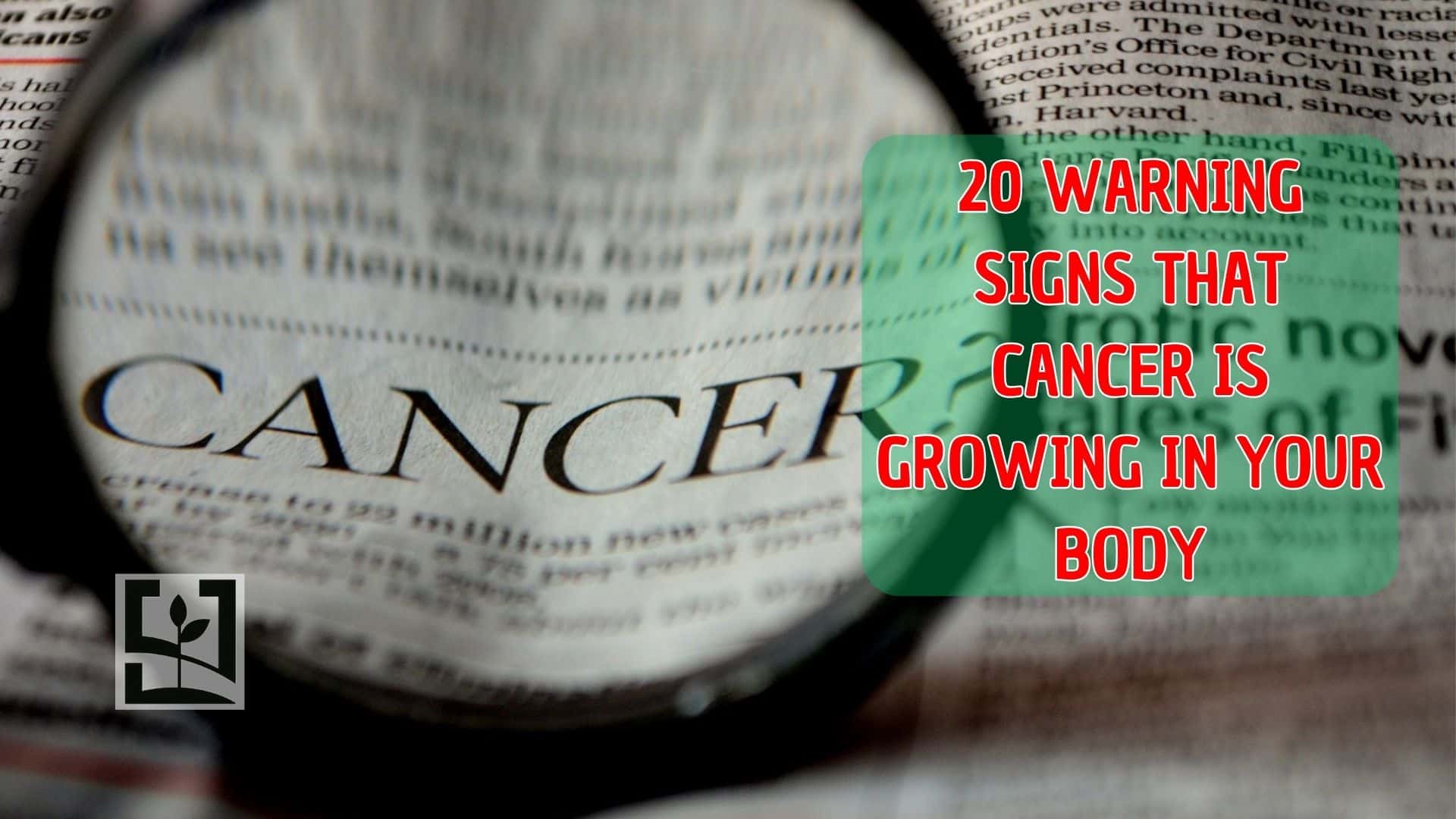“Cancer Awareness: 20 Warning Signs You Should Never Ignore”

Cancer is a powerful enemy, and early detection can significantly improve the effectiveness of treatment. Although these symptoms do not necessarily lead to death, they are important indicators that require immediate medical attention and evaluation. If you or someone you know develops any of the following symptoms, you should see a doctor immediately:
1. Unexplained weight loss: Weight loss without changes in diet or exercise should be investigated.
2. Fatigue: Chronic fatigue that doesn’t improve even with rest may indicate an underlying health problem, such as cancer.
3. Abnormal skin changes: Pay attention to skin changes, including new moles, changes in the appearance of existing moles, or darkening, yellowing, or redness.
4. Chronic cough or hoarseness: A persistent cough or hoarseness may indicate an underlying problem, such as lung or throat cancer.
5. Dysphagia: If dysphagia occurs frequently, it should be checked.
6. Changes in bowel habits: Chronic diarrhea, constipation, blood in the stool, or changes in stool consistency require medical attention.
7. Frequent urination: Frequent urination, especially when accompanied by pain or blood in the urine, should be further examined.
8. Visible blood in urine or stool: Any visible blood in urine or stool should be checked by a health care practitioner.
9. Abdominal discomfort or bloating: Long-term abdominal discomfort or bloating may be caused by a variety of diseases, including ovarian or gastrointestinal malignancies.
10. Non-healing skin sores or wounds: Sores or wounds that do not heal may indicate skin cancer or other underlying problems.
11. Persistent headache: Chronic headaches that last for more than a week and are accompanied by other bothersome symptoms should be investigated.
12. Changes in Breast Appearance: Any changes in breast shape, size, or texture, as well as the presence of a lump, should be evaluated by a doctor.
13. Lymphadenopathy: Enlarged, painless lymph nodes that persist for several weeks should be evaluated by a doctor.
14. Dysphagia: Esophageal cancer may be associated with persistent dysphagia.
15. Changes in the nail bed: Pay attention to changes in nail color, texture, or black line appearance, and seek medical attention.
16. Chronic back pain: Chronic back pain, especially chronic back pain of unknown cause and unbearable, should be further examined.
17. Vision changes: Any sudden or persistent changes in vision should be evaluated by an eye care professional.
18. Chronic indigestion: If you have frequent indigestion or heartburn and over-the-counter medications don’t help, talk to your doctor.
19. Testicular changes: Any changes in testicular size, shape, or pain should be evaluated.
20. Persistent pain: Unexplained, long-term pain should be treated by a health care professional.
Keep in mind that although these symptoms are annoying, they do not always indicate malignancy. Many non-cancer conditions can present with similar symptoms to cancer. On the other hand, early detection of cancer and evaluation of treatment are important for effective cancer management. If you or someone you know is experiencing any of these symptoms, seek medical help immediately to identify the underlying cause and receive appropriate treatment. Regular health checkups and screenings are important for preventing and diagnosing cancer early, so take care of your health.
Health Disclaimer: The information provided in this article is for awareness and educational purposes only. It is not intended to be a substitute for professional medical advice. If you are concerned about your health or experience any of the symptoms listed above, please consult a qualified health care provider immediately for appropriate evaluation, diagnosis, and treatment. Your health and well-being should always be your top priority.

